If you click on a link and make a purchase we may receive a small commission. Read our editorial policy.
Tiny Onion's Jazzlyn Stone on why comics aren't dying, and how to make people believe that
"I really like the idea of taking a creator's story and teasing out the parts of it that connect or bring fans into that story."

Popverse's top stories
- Frank Miller redefined Batman and Daredevil - and now he wants to do the same to you
- Chainsaw Man season 2 is where the show finally gets really weird [Popverse Jump]
- Bridgerton Seasons 1–3 recap: Everything to know before Season 4’s release
Last week’s announcement of the formation of Tiny Onion, a new comics and multimedia production house headed up by writer James Tynion IV, had some familiar names attached to it beyond just Tynion’s; the company’s director of editorial is former Boom! Studios editor Eric Harburn, its director of production is Courtney Menard, formerly of Z2 Comics, and director of communications is none other than Jazzlyn Stone.
For anyone who’s been at a major comic convention in the past few years, Stone’s name is likely familiar; she’s organized and hosted panels at San Diego Comic-Con, New York Comic Con, Emerald City Comic Con, C2E2, MCM London, Thought Bubble, and other shows in recent memory, as well as acting as marketing maven for publishers including IDW Publishing, Vault Comics, Oni Press, and many more. With such a lengthy resume, Stone’s affiliation with Tiny Onion speaks well of both parties — but we wanted a little bit more than that, so we spoke to Stone herself about what brought her to Tiny Onion, her own love of both comics and communications, and what’s so different about what she’s going to be doing with the company.
Popverse: I don't know whether to start with you or whether to start with Tiny Onion. Which do you feel more comfortable starting with?
Jazzlyn Stone: [Laughs] Let's start with me.
What is your origin story? How did you end up being the comics marketing goddess that you now are?
You are very polite. I started reading comics with Sunday Funnies and those $2 Double Digest Archies, Betty and Veronica… That's how I learned how to read comics. From there, my big brother got me into Walking Dead, all that stuff. But I got into comics work-wise through merchandising; I was working with individual creators and helping them kind of translate their books into wearable art merch that their fans would actually want to buy.
There is so much natural overlap in fans of fashion and the fans of comics: both fan bases are driven by a love for collaborative art that makes you feel like you belong. I get annoyed when people parrot that old trope that comics aren't seen as cool or people look down on them as an art form. In my experience – as somebody who talks to a lot of non-comics people, civilians – comics are seen as a very cool art form. More often, I hear people say that they worry they’re not cool enough to read comics. So I think that's how I got into comics: through just trying to make both sides connect, helping comic creators make merch for their fans, and then getting fans of the merch to pick up the OG book. I’ve spent a lot of time trying to welcome new readers – like, comics are for everybody. You can read these. It's not like The Simpsons; there's no one waiting at the door, asking for your nerd cred.
There's always going to be someone at the door asking for your nerd cred! [Laughs] You are on the internet, you know exactly how this works. But, wait: what is your personal background, that you're working in clothing?
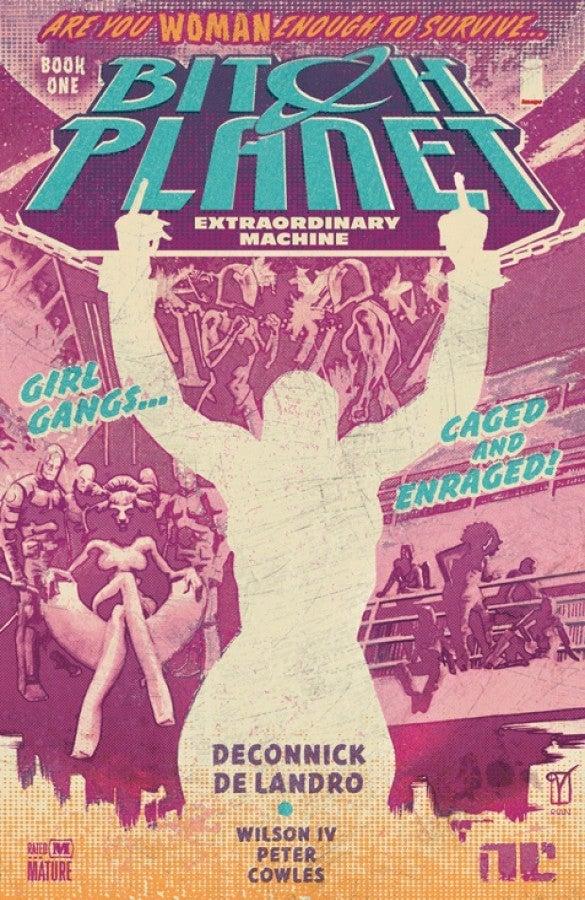
I started working with a start-up that wanted to prove that clothing could be less wasteful but still maintain quality by manufacturing on demand. I started with them as an intern, and worked my way up until I was the COO. By that time, we had taken on other brand partnerships and started working with individual artists. Our first comic partnership was making Bitch Planet merch with Kelly Sue DeConnick and Valentine De Landro. It just ended up being a fantastic collaboration, and DeConnick was the perfect introduction to baller comics creators.
I feel Kelly Sue and James have some sort of similarity in some ways – there's a sense of outreach beyond the traditional comic reader, and that's something that I always put with you as well. You're not marketing to the traditional comic creator. You're always trying to be like, "But who else wants to be part of this?" I’m getting ahead of myself, though; you were COO of that company and now you're director of Tiny Onion. You've worn many hats.
[laughs] I still do.
When I think of the things you do, it’s a list of many, many things. Is this your natural restlessness or is this just an ability to go wherever life takes you? I ran into multiple conventions last year and you're doing multiple different things at each one.
Yeah, that's true. I am a bit restless – I love the thrill of bouncing around from project to project. I grew up poor, so I've been grinding or figuring out how to make my own money since pretty early on. I cleaned the community center's pool for cash, or I helped start a famer's market in my neighborhood so I could sell little duct tape wallets. If someone wanted a custom one, I would take it on, like, "Yeah, I'll figure it out. I can do that." And then I would just go home and figure it out. So I think it's that drive, the audacity of poverty that fuels me. It just makes you figure out how to make things work, regardless of the assets you have access to. I’m really grateful for that lesson.
How did you get involved with Tiny Onion? How did this come about? Because this is a new thing and this is a thing that is even new within comics, I think. It's not a publisher, it's not a studio… It's crossing into multiple things, but it's a different thing in and of itself. How did you get involved?
Oh dude, I don't know. Right place, right time I suppose. We met at Thought Bubble briefly, and then talked at San Diego Comic Con in 2023. That was a weird convention for me – technically it was successful, but I felt this…frustration. As an industry, we were having these weekly twitter threads about the death of the industry, but at San Diego I was speaking to fans and their excitement was palpable. The disconnect from the business side of the industry, the enthusiastic fans, and the ever-present GoFundMes to support aging artists. It just didn't sit right with me. So, there I am, a frustrated woman at her wit’s end, and James comes up to me at an afterparty, we have a casual conversation about the industry. That’s that. A couple months later he emailed asking if he could run something by me. Maybe he sensed my frustration that night. Maybe he just liked the ‘cut of my jib’ as it were. But anyways, we get on the call, and it felt so rejuvenating...so affirming, you know? James is smart and driven and he’s got this hope about the industry that I respect. Plus he’s genuinely kind.
Was Tiny Onion a thing at that point or was that just a call where both of you were just excited?
Technically, it was still an idea at that point but he was already in the process of securing funding and building the base. But the excitement is so necessary to maintain that fire you need to start a new company. Especially, as you mentioned, it’s a bit of a unique company for comics, not a publisher but a production house. We work with creators and publishers to help keep the train on the tracks from the backend of things. Courtney Menard is the Director of Production. She does pre-press and design work. Eric Harburn is our Director of Editorial. And so he's kind of overseeing all of James's projects, but then also helping run editorial and casting for other projects. And then I'm the Director of Communications, so I'm figuring out how to talk about the projects and creators so they can find new fans, but maintain those relationships with their day ones.
Beyond being excited, what is it actually like, because that's a big thing that you're doing. I think James has built a very particular following in a very particular way, and it's not entirely reproducible, because James is James. Not everyone can do what James does. When you're coming into it, how do you approach this?
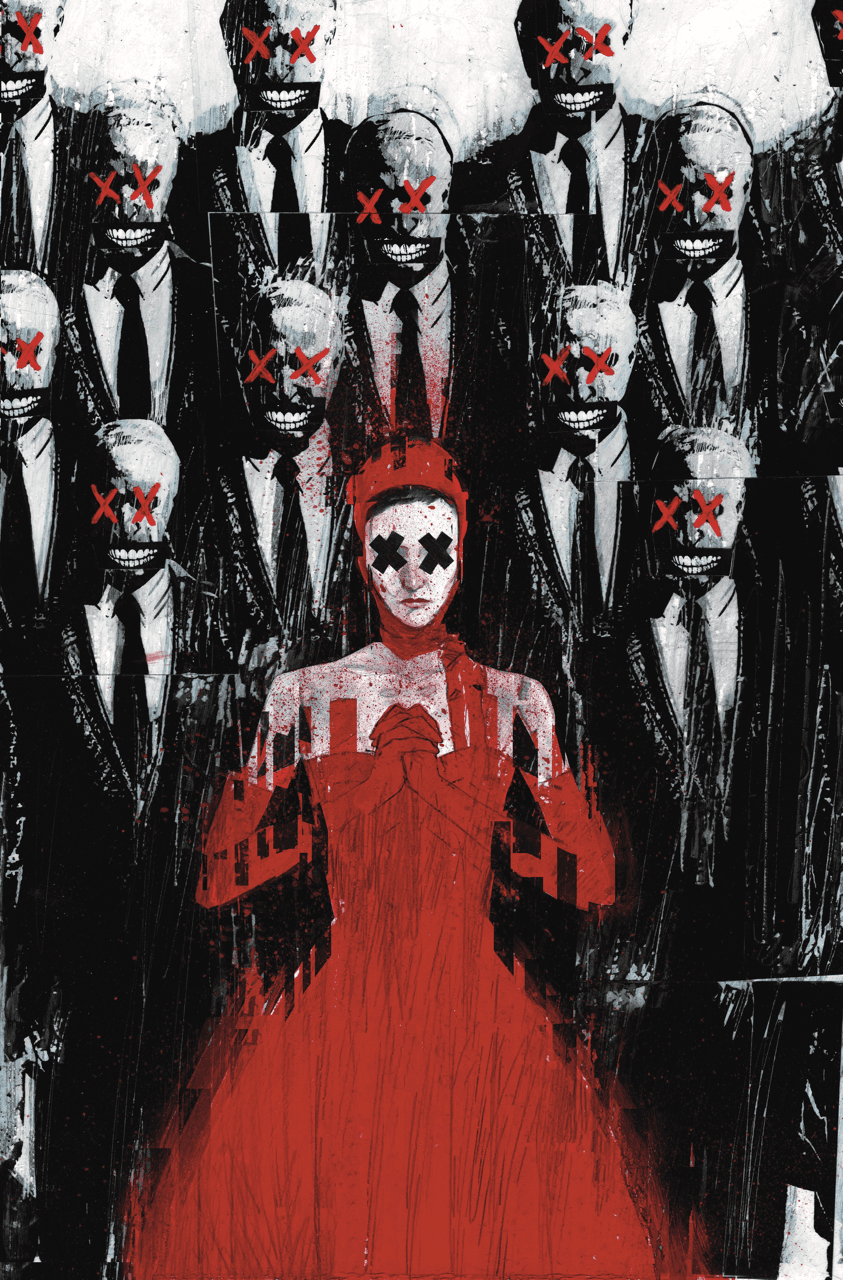
It’s not the fun, easily quotable answer, but there’s no one way to market a comic. James has figured out how to successfully communicate with his fans, and there is a lot to be learned there, but I wouldn’t expect every creator to do it the same way. Courtney and I talk a lot about meeting books where they're at, and enhancing them. Take the Blair Witch Project for example. The marketing behind that film created another level of meta experience to it. They were doing all the found footage and the found trinkets and stuff and made it into the cult classic that it became. It was a good movie regardless, but the marketing and the experience of watching it made it a cultural moment. A turning point. And I really like the idea of taking a creator's story and teasing out the parts of it that connect or bring fans into that story.
Marketing should be an expansion of the world building that they've done in the book. This is what Courtney and I talk a lot about – the print production should be an expansion. So when you're holding the book, the feel of the paper, the weight of the paper, if there's a bookmark, all of that stuff adds to how you feel when you hold it, how you feel when you read it.
James did what he did to build his fanbase, and it's hard to replicate that, but what we can learn at the heart of that is being authentic to both you and your story. Finding fans that want that and feel reflected in that. That's the future of marketing art. I think that's what some of these bigger companies are struggling with. When I say bigger, I mean these media giants buying and selling each other. They’re so big, they don’t know how to tell an authentic story and connect with that story’s fans. They try to sell stories that everybody will like. You can't do that. It’s inauthentic. Ironically, the more niche you go with a story, the more there's actual stuff to grab onto and then anybody can relate to it. Does that answer your question?
Yes. But also, I love that you're really ambitious. You're basically, "This is the future of marketing art as a whole."
Yeah, I think so. The future is a creators’ market, ultimately.
Is this new role, this new company, scary or is it exciting?
Oh, it's both. I think in my experience, the things that have brought me the most joy are exciting to the point that they're scary, if that makes sense.
How much of a traditional company is Tiny Onion? Are you all in the same space, or is this a virtual sort of network of a community that sort of exists out there, all over everywhere?
We're all remote. I'm on the west coast, with the rest of the team on the east coast. But we have publishing partners and companies all over the US. The creators we work with are global. We have a little Discord we treat as our virtual office space.
Listening to you talk about it, it feels very intimate, despite that. Like you said, James is really loyal and the company is built with people he has relationships with: “Here’s my editor from Boom!” and so on. Just hearing you talk about Courtney and Eric and James, you clearly have relationships with these people as well. It feels like it's not just a company, but also, I don't want to say family, because that's completely cliched, but there seems to be a common purpose there that's not just a paycheck. Is that what's driving you, that you are all on the same page of like, "Oh, we can do this better?"
Yeah, it definitely helps. Once a quarter we have a summit where we all get together in New York. We just did that a couple weeks ago, and I was listening to Eric talk about how he feels strongly that he wants to dedicate his life to helping artists bring their art to market and tell their story. And I was like, "That's beautiful." I literally got choked up in the middle of a meeting.
It's so funny that you're like, "I got choked up," because surely helping artists tell their story is what you do, and what you’ve spent years doing by this point.
Yeah. I mean, I don't know how woo-woo you want to go, but I just think that dedicating your life to art, while obviously a privilege, is very exciting, very hard, but I also think it's so respectful. And if there's anything I can do to help people that have dedicated their life to art, if I can help artists get paid to make art and live comfortably and not have to run a GoFundMe when they're 50 to help cover their health expenses, I would consider that a life well lived. I would be so happy.
You keep talking about art as opposed to comics, and it’s something to talk about: Tiny Onion is not just a comics company. The announcement basically says, “We're telling stories the best way to tell stories, and that may be comics, but it won't always be comics.” How does that fit into everything, the cross-media aspect?
Well, I think that goes along with what I've been saying about the communication, the marketing of a story being to meet a story where it’s at and expand upon what already makes it great. I think comics are one of the greatest artforms, but not every story is best in a comic form.
I think about something like BioShock, the fact that you were complicit in the storytelling since you’re playing a video game. You wouldn’t get the same feeling if it were a movie or if it were a comic. For that particular story, I can't imagine that hitting me as hard in any other medium. So I think part of respecting each story is respecting that it should be experienced in the medium that it wants to come in.

I feel like there are bleeds between all of your roles at Tiny Onion. Do you see a time when your role as talking to people how to market their work, how to communicate the work, changes the actual work? Can you see a point where it's going to actually impact the creation of the work?
That's a really good question. Yes, marketing can absolutely impact the art – that’s why marketing is so important. Damn… thinking about impacting art, which I mean, I hope I've conveyed, I think is really fucking sick. Very cool. Thinking about anything that I do impacting [its creation] in any way feels humbling and scary, but exciting.
"Really fucking sick," is the pull quote for this entire interview, by the way. [Laughs] Okay, last question: outside of James's projects, can you think of three projects that fit into the ethos of what you and Tiny Onion want to do there?
From all of history?
Yeah. Three things that you're like, "Yeah, that's it."
If we're going by ethos and not an exact one-to-ones, I'd start with the previously mentioned Blair Witch Project. I think that's a good example of what you brought up: marketing around a project elevating it.
For the second one, Beyonce's Renaissance album, tour, and accompanying documentary. She's a visionary in all things, but with this project in particular I admire how much attention went into the details. The album itself, how that album was experienced by not only the fans at the live shows, but also the touring crew and musicians themselves, how that album was translated to film, and then how that film was experienced by fans. The level of trust and respect that Beyonce has for her audience is beautiful.
The last might be a… stretch, but I get a lot of inspiration from the New York Public Library System. It's not a business, yeah, but their community building and marketing campaigns are S tier. They had one during NYCC explaining the danger of banned books and promoting reading in one fell swoop. S tier work.
If that doesn't count then I'll add literally anything Monkey Paw produces. They’re another company whose marketing inspires me. They've perfected the art of the teaser trailer.
Want to know what's coming up next in pop culture? Check out Popverse's guides to:
Follow Popverse for upcoming event coverage and news
Find out how we conduct our review by reading our review policy
Let Popverse be your tour guide through the wilderness of pop culture
Sign in and let us help you find your new favorite thing.


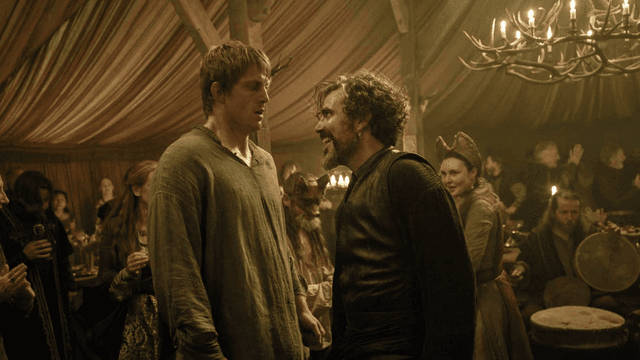
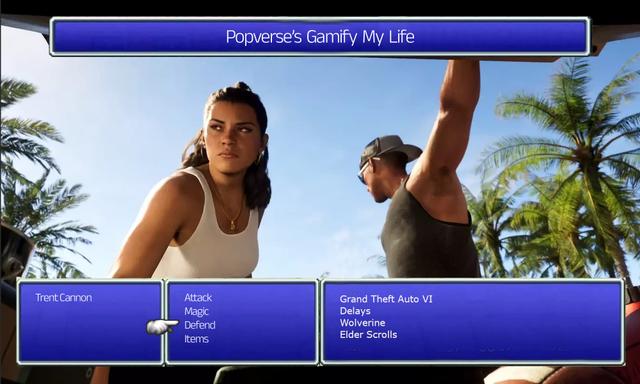


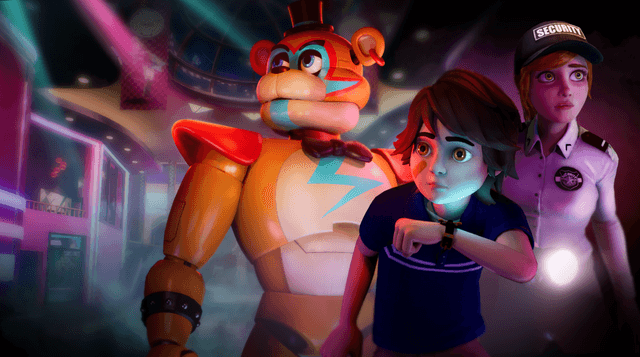
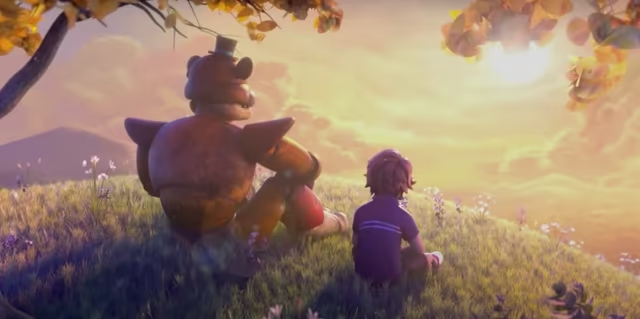
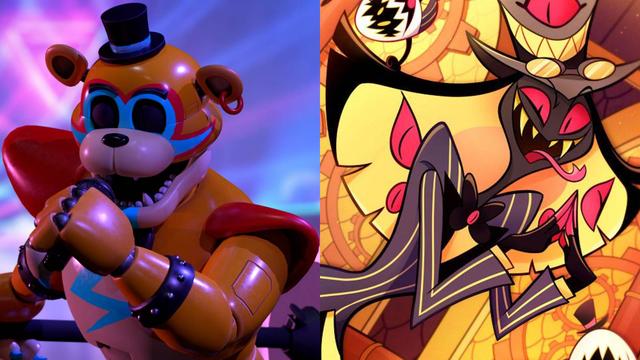







Comments
Want to join the discussion? Please activate your account first.
Visit Reedpop ID if you need to resend the confirmation email.